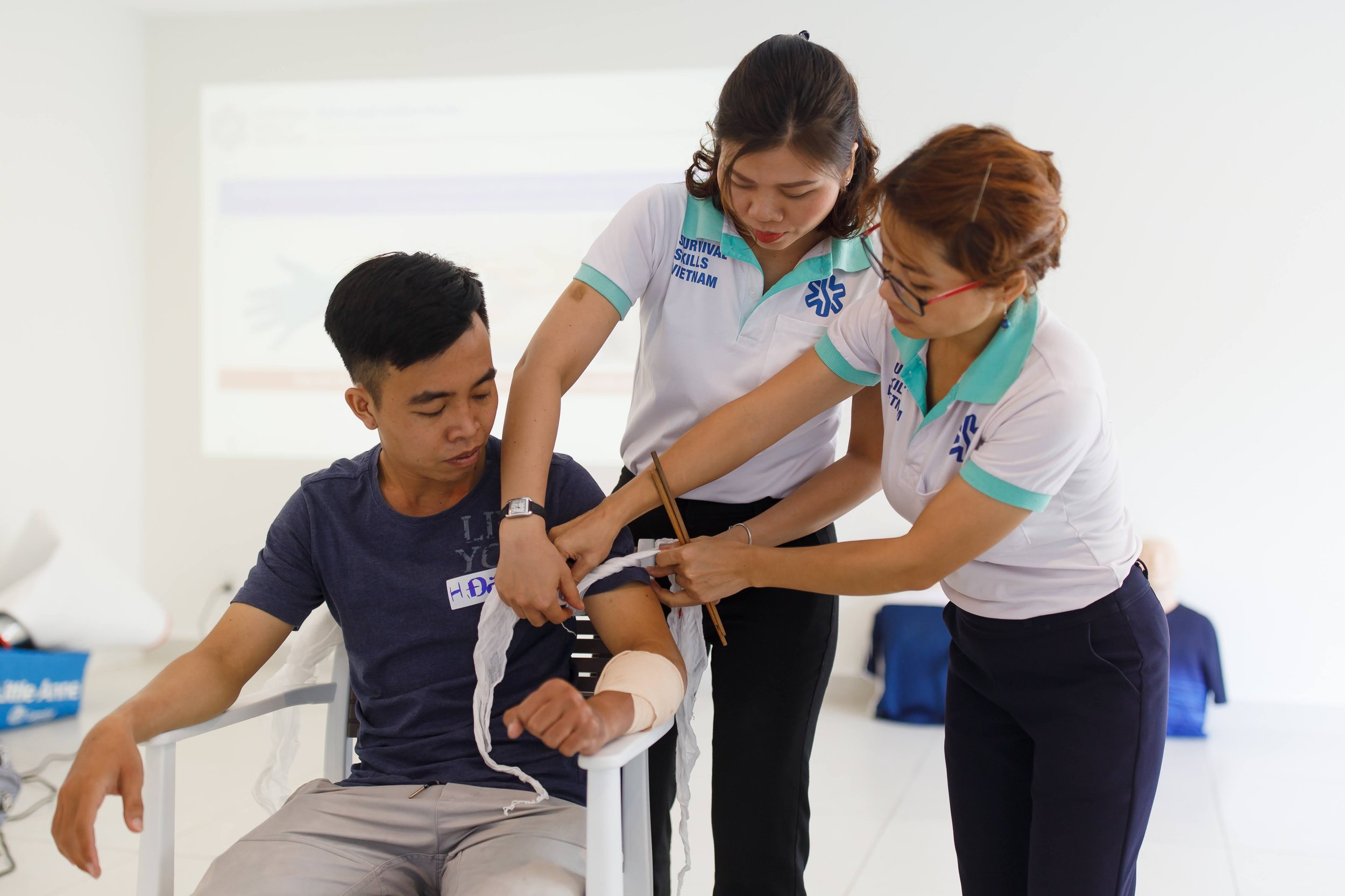Founders Feature: Ho Thai Binh, Co-Founder, Survival Skills Vietnam
Ho Thai Binh (L) with fellow co-founders Trang Jena Nguyen (M) and Tony Coffey (R).
1. Tell us more about Survival Skills Vietnam!
Survival Skills Vietnam (SSVN) is a social enterprise with the mission to reduce preventable deaths and injuries in Vietnam via first aid education according to international standards.
We provide commercial training to companies to raise funds to support underserved communities who suffer greater health and safety risks. These include people with physical disabilities and their caretakers. We have also worked with schools in remote areas on first aid training and drowning prevention programmes.
So far, we have provided our education to 150,000 Vietnamese via both commercial and not-for-profit programs, 70% of which are through digital channels such as our e-learning platform, a mobile app, and educational videos on YouTube.
2. What led you to start SSVN?
A lot of victims suffer not because of the injuries or accidents themselves but because bystanders cannot provide correct and timely emergency care. This may lead to their problems deteriorating and even deaths.
CPR and first aid education are compulsory in schools and workplaces in many developed countries, but they are not popular in Vietnam as well as many ASEAN countries.
3. How does SSVN use technology to increase impact?
Traditional first aid education is costly and inaccessible in many regions where the population faces greater health risk and poorer emergency care.
We use technology to make it more accessible. Our services include:
Mobile app that provides quick emergency instructions
E-learning platform that facilitates online and blended learning. This works well for big organisations like schools and factories. It also allows other NGOs to host public health content such as mental health, nutrition, breast feeding etc
Spotify audiobook for the blind
4. How is GoodHub SEA (GHS) supporting your organisation?
GoodHub SEA volunteers: Cham Li Hui (L) and Chua Shi Yunn (R).
The GHS team (Cham Li Hui and Chua Shi Yunn) has helped us in our search engine optimisation strategy, specifically in boosting our ranking on Google search and advised us on using AI to generate educational online content faster. More people can now find our free educational resources for their learning.
5. What does GHS’ movement of gathering tech experts to support non-profit organisations to solve meaningful societal problems mean to you?
Technology can help to scale the social impact of non-profit organisations as much as it scales revenue of traditional businesses. Unfortunately, most impact organisations are not able to afford the luxury of new technologies and hire people who can implement them.
It’s important to help non-profits. Social problems may not hit us immediately or directly but they eventually will seep into ways that affect us. If we help non-profit organisations, we can and will make a difference to our own lives too.




